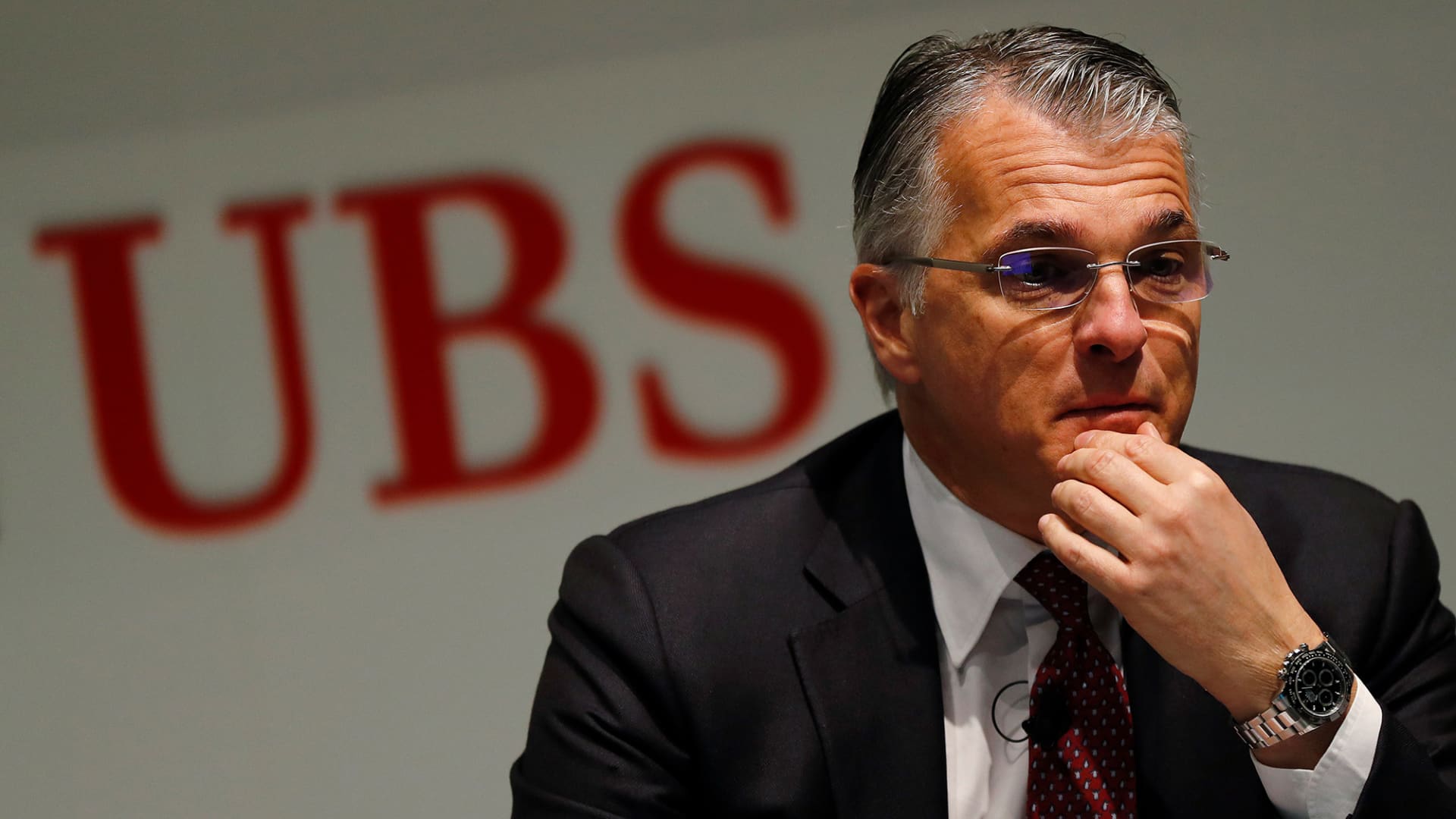Incoming UBS CEO Sergio Ermotti on Wednesday said his return to the helm was “a call of duty,” as the Swiss veteran takes on the task of restoring order to the country’s battered financial reputation.
UBS announced on Wednesday that the former CEO would replace Ralph Hamers from April 5, as the Swiss bank undertakes the mammoth task of integrating fallen rival Credit Suisse into its business.
related investing news
In a press conference, UBS Chairman Colm Kelleher lauded Hamers’ tenure, highlighting the company’s “unprecedented success despite a challenging environment” under the Dutchman’s tutelage, and his instrumental role in delivering the Credit Suisse deal.
UBS has posted two consecutive years of record profits and returns to shareholders under Hamers, but Kelleher said the acquisition of Credit Suisse “created a new reality” and “imposes new priorities” on the board.
Kelleher said the board decided that Ermotti’s experience in picking UBS up from the canvas after the 2008 financial crisis rendered him uniquely qualified to lead the new combined entity through what promises to be a challenging and drawn out integration.
“In particular, he built financial strength and improved resilience by putting the firm’s leading global wealth management business and Swiss universal bank at its core,” Kelleher said of Ermotti’s tenure as CEO from November 2011 to October 2020.
“Sergio swiftly transformed the investment bank by cutting its footprint, and achieved a profound culture change within the bank which allowed it to regain the trust of clients and other stakeholders while restoring people’s pride in working for UBS.”
He added that this, combined with Ermotti’s “deep understanding of the financial service industry in Switzerland and globally,” made the Swiss banking veteran the man for the job.
Credit Suisse’s emergency sale to UBS followed years of losses and scandals, and Swiss authorities and regulators’ hasty brokerage of the deal over the course of a weekend dealt a blow to the country’s reputation for financial stability.
Kelleher emphasized that Ermotti’s task — the successful integration of Credit Suisse into UBS — was “essential for both banks’ clients, people and investors, for Switzerland and for the global financial system in general.”
Ermotti’s first stint as CEO began amid the fallout from a $2.3 billion loss inflicted on the bank by a rogue trader in London. He inherited an ailing investment bank that had been forced to write off more than $50 billion during the great financial crisis, along with being implicated in what would become a costly Libor investigation.
After a campaign of sweeping job cuts, an exit from substantial portions of the fixed income trading division, the investment bank was focused and streamlined, and Ermotti’s radical course of action was welcomed by investors.
‘Call of duty’
Ermotti leaves his post as chairman of Swiss Re, one of the world’s largest reinsurance companies, in order to take the reins at the new combined Swiss banking behemoth.
Asked by CNBC during Wednesday’s press conference about his motivation for returning to UBS, Ermotti said there was “a call of duty aspect” to his decision.
“And also, frankly speaking, I always thought that despite all these discussions and the size of the bank, I always felt that the next chapter I wanted to write back then was a chapter of doing a transaction like this one.”
He also confirmed that he will be in the role for “as long as they want me,” and emphasized that bank wants to “take away uncertainty as soon as we can” regarding its restructuring and prospective layoff plans.
“I’m fully aware that we need to work very hard here to avoid any consequence for the taxpayers in Switzerland. You have my word and my commitment that together with my team, we will work and do everything that it takes to make this transaction successfully, and to write another very important and successful chapter in UBS’ history,” Ermotti told Wednesday’s press conference.
“I am convinced that together with my colleagues, by focusing very hard on the needs of our clients, taking consideration also of the needs of all the employees that I’m sure are right now somehow concerned about their future, and also the interests of our shareholders, by balancing at best the interests of those three stakeholders, we will be able also to make all of society and all the rest of the stakeholders in Switzerland pleased with what we do.”
The banking turmoil has created a febrile political environment in Switzerland as the government looks to shore up the system ahead of the federal election in October.
Beat Wittmann, partner at Zurich-based Porta Advisors, told CNBC on Wednesday that the appointment of Hamers was “a Swiss solution” to the uncertainties facing the country, and the challenge of rebuilding trust in Switzerland’s banking sector and policymakers.
“We should not underestimate the anger of the population at the failure of successive management at Credit Suisse, all self-inflicted casualty, and the trinity of policymakers — the central bank, FINMA and the finance ministry — didn’t really act prematurely and in a timely manner, but really let this happen and had then basically to forge a solution over the weekend,” he said.
“This decision here to put Sergio Ermotti — proven, trustworthy in the view of the public at large and also the industry — in place here as the CEO is certainly going to calm these kinds of discussions, and that’s certainly also one of the motivations.”


